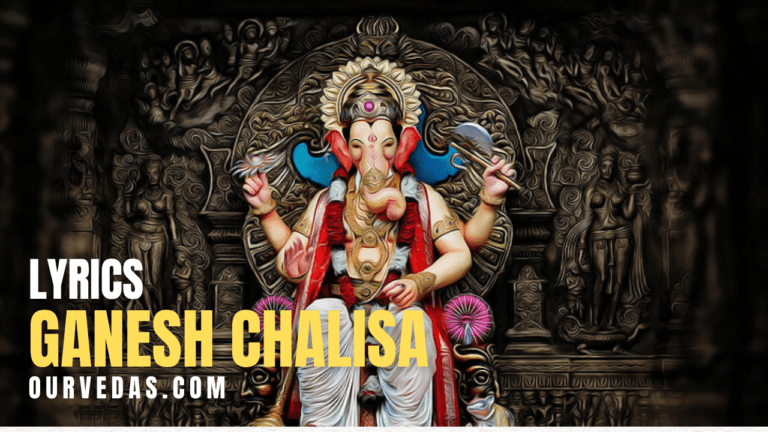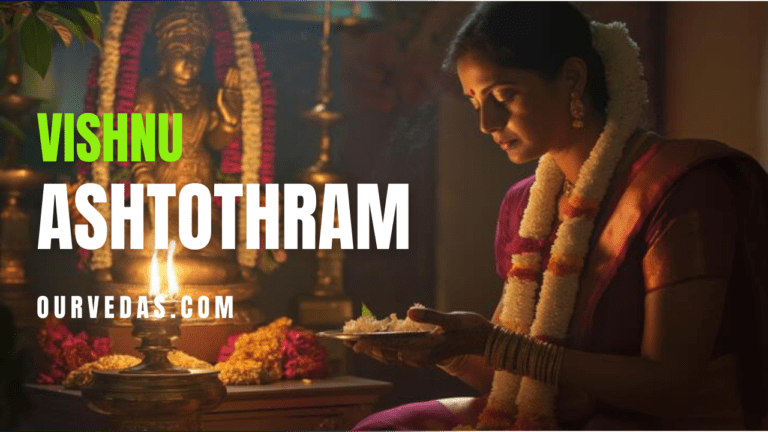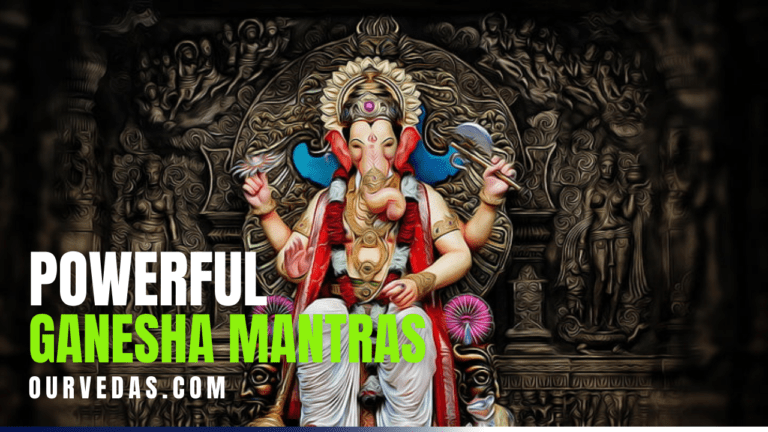Shiv mantras are very powerful chants dedicated to Lord Shiva, one of the main deities in Hinduism. He is considered the “Destroyer” in the Holy Trinity (Trimurti), with Brahma the “Creator” and Vishnu the “Preserver.” Lord Shiva is the essence of transformation and regeneration. His mantras carry deep meaning, said to invoke blessings, protection, and spiritual awakening.
5 Powerful Shiv Mantras

What are mantras?
Mantra chanting is a spiritual practice deeply rooted in various religious and philosophical traditions, mainly Hinduism, Buddhism, and Jainism. The word “mantra” comes from the Sanskrit terms “man” (to think) and “tra” (to free), suggesting that a mantra can free the mind through thought and meditation. Mantra chanting fundamentally involves repeating sounds, words, or phrases imbued with profound meaning and purpose.
Shiv Mantra Lyrics
Here are some of the most well-known Shiv mantra lyrics with their meanings:

Om Namah Shivaya
Translation: “I bow to Shiva.” It is one of the most popular mantras to Lord Shiva. This emphasizes surrender and devotion to Shiva and recognizing his divine nature.
Mahamrityunjaya Mantra
Sanskrit: “Om Tryambakam Yajamahe Sugandhim Pushtivardhanam. Urvarukamiva Bandhanan Mrityor Mukshiya Maamritat.”
Meaning: “We Meditate on the three-eyed one (Lord Shiva), who permeates and nourishes all like a fragrance. May he liberate us from the bondage of worldly attachments and lead us to immortality.” This mantra is known to protect and heal.
Panchakshara Mantra
Sanskrit: “Na Mah Shivaya.”
Meaning: “The five syllables are the essence of Lord Shiva.” This mantra, which translates to “I bow to Shiva,” encompasses the worship of his five elements and is believed to be very powerful.
Shiv Gayatri Mantra
Sanskrit: “Om Tat Purushaya Vidmahe Mahadevaya Dhimahi. Tanno Rudra Prachodayat.”
Meaning: “Om, let us reflect on the highest person (Shiva). May that God be our inspiration and illumination to all thinking”.
That’s a prayer to Lord Shiva for wisdom and illumination.
Om Hrah Hrah Shivaya Namah
Meaning: He says this mantra is associated mainly with spiritual purification and transformation, and it attracts the essence of Lord Shiv.
Remove all negative energies or evil forces, and strength can be gained through spiritual purity.
Om Shanti Om
Meaning: “Peace.” Although this is a more general mantra, it is often used with Shiv mantras to invoke peace and tranquility, both within oneself and in the environment.
Each of these mantras serves as a powerful tool for devotees to express their devotion, seek healing, or invoke the divine presence of Lord Shiva in their lives.
How to chant Shiv mantras?
Chanting is an extremely personal and spiritual practice. Here’s how to chant effectively in the power of these mantras:
- Choose a Quiet and Serene Space: This could be at home, in a temple, or any place you are comfortable with where you can concentrate on chanting without distractions.
- Set Your Intention: Before you begin to chant, take a few deep breaths to calm and center yourself. Reflect on the intention for which you wish to chant-be it for peace, healing, spiritual growth, or devotion to Lord Shiva.
- Comfortable Posture: Sit with your back straight, feeling comfortable either cross-legged on the floor or on a cushion or chair with your feet resting flat on the ground. Your hands should be in a mudra (gesture) that feels natural to you; place them in your lap or on your knees.
- Close Your Eyes: Slowly close your eyes to reduce distractions and focus more. Take a few deep breaths to relax your mind and body.
- Start with a Deep Breath: Inhale through your nose and feel your abdomen expand. Hold it for a second, then breathe out slowly through your mouth. Repeat this a few times to relax.
- Begin chanting: Recite the chosen Shiv mantra lyrics. It could be chanted silently in the mind or aloud, according to whatever seems natural to you. Maintain a constant rhythm and let the vibrations work for you.
- For instance, repeating “Om Namah Shivaya” several times so that each syllable, along with its meaning, is sounded in your mind.
- Please pay attention to the Meaning: Reflect on the meaning of the mantra and what it holds while you are chanting. This intensifies your connection to the chant and the effects that arise.
- Count Using a Mala or Counter (Optional): You can count the number of times you are repeating using a mala or a counter, if you prefer. Each time you make one full round of 108, you’ve completed a full cycle of chanting the mantra.
- Conclude Your Practice: After chanting for a set amount of time (such as 10-15 minutes) or a specific number of repetitions, gradually bring your awareness back to your surroundings. Take a moment to express gratitude for the experience.
- Reflect and Integrate: Take a few minutes of silence to reflect on how you feel after the practice. You can keep a journal to note any thoughts or insights that arise during the chanting.
Additional Tips
- Consistency: Try to incorporate mantra chanting into your daily routine for the best results. Morning or evening sessions can help establish a regular practice.
- You may choose to join a Group: This chanting experience may add collective energy, which will heighten the effects of the mantras. It is a very nice way of amplifying the experience.
- Listen to Chanting: Listening to someone chant Shiv mantras is the easiest way to get familiar with how it is pronounced and with the rhythm.
- Stay Open: Approach the practice with an open heart and mind. Every experience may vary, so be patient and allow your practice to grow organically.
By following these steps, you can deepen your connection to Lord Shiva and experience the transformative power of Shiv mantras in your life.
What is the importance of Shiv mantras?
The meaning of chanting is different in different cultures and personal practices, but it is primarily used to achieve a state of inner peace, focus the mind, and lead to spiritual awakening. Shiv mantras are repeated to meditate, which allows individuals to dive deeper into their consciousness and connect with a higher spiritual world. This practice, therefore, not only enhances concentration but also silences the mental chatter that usually distracts individuals from their inner selves.

In many traditions, shiv mantra lyrics are believed to possess vibrational qualities that can influence the surrounding environment and the practitioner’s state of being. This is because sound has the power to affect energy and consciousness. For instance, in Hinduism, mantras often invoke the blessings of deities, and each syllable is considered sacred. Chanting these mantras with intent can lead to spiritual purification, emotional healing, and clarity of thought.
The chanting practice can be silent, done during meditation; vocalized; or performed as a group in a temple or a spiritual retreat. Each has its merits. Silent chanting allows one to dig deeper into his or her soul, whereas vocal chanting fosters community and shared energy among practitioners.
Furthermore, Shiv mantra chanting is not limited to a specific place and time. Many practitioners often include it in their daily regime, using mantras to give them a positive start or to reset their brains during stressful moments. This easily accessible practice allows individuals from varied backgrounds to develop mindfulness in response to their situations.
Apart from spiritual benefits, research studies reveal that mantra chanting can have good effects on mental and physical health. This practice can reduce stress, enhance emotional well-being, and improve cognitive function overall. By focusing on the sound and vibration of the mantra, one can find a sense of calm, thereby reducing anxiety and promoting relaxation.
The Science of Chanting
Shiv mantras are those sacred utterances that invoke the presence and blessings of Lord Shiva, one of the principal deities in Hinduism. Known as the destroyer in the Holy Trinity (Trimurti) of Brahma, Vishnu, and Shiva, Lord Shiva represents transformation and regeneration. According to belief, reciting Shiv mantras aligns the devotee with his divine energies.
The most popular ones of these mantras include the Mahamrityunjaya Mantra, Om Namah Shivaya, and the Panchakshara Mantra. Every mantra has its own vibrations and implications, so that the people express their devotion, ask for guidance, and invite peace and prosperity into their life.
Connecting with the divine power of Lord Shiva through Shiv mantras is one thing that allows devotees to link up with this energy. It helps the mind feel supported and reminds one of not being alone in struggles or aspirations.
Manifestation of Desires and Healing Properties
Devotees often chant Shiva to manifest their desires and intentions. The belief is that sincere and focused chanting can attract positive energies and help fulfill one’s aspirations, whether spiritual, emotional, or material.
Many believe that Shiv mantras are healing mantras. For example, the Mahamrityunjaya Mantra is recited for health and longevity. It is said to produce vibrations and energies which can heal the body as well as the mind and ward off diseases, inducing a state of being invulnerable to negative influences.![]()
Additionally, chanting mantras can improve one’s vibrational frequency. In yogic philosophy, it is believed that sound frequencies affect our physical and emotional states. Therefore, reciting Shiv mantras can lead to improved health and well-being, creating a harmonious balance in life.
In Hindu tradition, mantras are often recited along with pujas. Shiv mantras play a crucial role in many ceremonies performed for Lord Shiva, especially on Maha Shivaratri and other significant days. Mantra chanting is believed to add more potency to the puja, and it brings divine blessings along with deep devotion.
Creating Community and Culture
The collective recitation of mantras often creates a sense of community among devotees. Temples and spiritual gatherings where groups gather to chant mantras are a bonding experience. This collective practice reinforces cultural traditions and teachings passed on from generation to generation, promoting social unity and spiritual growth.
Life is full of trials and tribulations, and people go through the Shiv mantras at difficult times. This hope to be healed and helped through chanting provides solace and hope. Chanting mantras enables the devotees to concentrate their energies toward favorable results, converting negatives into strength.
The powerful vibrations of Shiv mantras can also give clarity and insight, which can help people move through uncertainties in life. This transformative quality reaffirms faith and resilience, empowering people to overcome struggles.
Incorporating Shiv Mantras into Daily Life
Incorporating mantras into your daily life can be a fulfilling spiritual practice. Here are some ways to do so:
- Morning Routine: Start your day off with chanting or reciting Shiv mantras. That can be part of your meditation, or your yoga session. Then you are sure to have a peaceful morning before the rest of your busy day.
- Meditation: Allocate just a few minutes in your day to meditate, reciting Shiv mantras. In the process, concentrate upon the meaning of the mantra, and it shall give you the calmness and concentrate in that particular moment.
- When under challenges, remember to perform shiv mantras if possible to draw power and assistance during the moment. It also tends to help focus or settle in at moments.
- Creating a Sacred Space: Choose a corner in your home where you would sit or keep a picture or the idol of Lord Shiva to chant mantras often.
- Incorporate into Daily Activities: You can mentally repeat mantras while commuting, cooking, or performing chores. This will keep your mind centered and connected to your spiritual beliefs throughout the day.
- Evening Reflection: Before going to bed, reflect on your day and chant a mantra as a way to express gratitude and seek blessings for the coming day.
- Mindfulness: Shiv mantras can be used as a focus for mindfulness. Recite the mantra whenever distractions or feelings of being overwhelmed wash over you, and bring thoughts back to the present.
- Sharing and Community: Join a community or group practicing chanting Shiv mantras. Sharing this practice can make it both more enjoyable and provide some sense of belonging and shared spiritual experience.
Learn and understand the meanings and depth behind the mantras you chant. This can enhance your connection with the experience.
Regular inclusion of these practices creates a solid foundation for spiritual growth and brings the essence of Shiv mantras into everyday life.
Read: Mangalam Bhagwan Vishnu Mantra
Conclusion
Shiv mantras are more than mere sounds; they are manifestations of spirituality, healing, and devotion. There can never be any debate about the significance of such mantras in spiritual practices, since they lead people toward greater self-understanding, relationship with the divine, and transformation. When these mantras are inculcated into life, the practitioner develops peace, strength, and harmony while relating to the enigmatic Lord Shiva at a more profound level. The eternal energy of destruction and regeneration could be tapped through the Shiv mantras that devotees can channel onto their spiritual paths.







